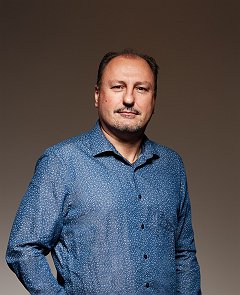(When) Do we need to write (precise) requirements?
The fact of the matter is that many software development organizations do not develop software based on complete and precise requirements. Some organizations require explicit requirements for certification purposes (e.g., traceability to acceptance test cases) or because their customers demand them (e.g., for contractual purposes). Many others rely, at best, on a high-level business plan or vision, and adopt an agile development process involving frequent interactions with future users. Further, when requirements are written, it is often in natural language, and they are often imprecise and incomplete. I will explore, based on my experience, the factors at play to explain this situation and possible ways to make precise software requirements worth their cost, from a practical perspective. I will argue that, in many contexts, (precise) requirements must lead to better automation of various development tasks to be considered economically viable, and that this must be the focus of our research to achieve maximal practical impact.
Lionel C. Briand is professor of software engineering and has shared appointments between (1) The University of Ottawa, Canada and (2) The Lero Centre, University of Limerick, Ireland. In collaboration with colleagues, over 25 years, he has run many collaborative research projects with companies in the automotive, satellite, aerospace, energy, financial, and legal domains. Lionel has held various engineering, academic, and leading positions in seven countries. He currently holds a Canada Research Chair (Tier 1) on “Intelligent Software Dependability and Compliance” and is the director of Lero, the national Irish centre on software research.
Lionel was elevated to the grades of IEEE Fellow and ACM Fellow for his work on software testing and verification. He was granted the IEEE Computer Society Harlan Mills award, the ACM SIGSOFT outstanding research award, and the IEEE Reliability Society engineer-of-the-year award, respectively in 2012, 2022, and 2013. He further received an ERC Advanced grant in 2016 on the topic of modelling and testing cyber-physical systems, the most prestigious individual research award in the European Union, and was elected a fellow of the Academy of Science, Royal Sociey of Canada in 2023.
Tue 16 AprDisplayed time zone: Lisbon change
09:00 - 10:30 | Session 1: Welcome + Keynote + workshop activityMO2RE at Amadeo de Souza-Cardoso Chair(s): Sallam Abualhaija University of Luxembourg, Chetan Arora Monash University, Alessio Ferrari CNR-ISTI, Davide Fucci Blekinge Institute of Technology | ||
09:00 10mDay opening | Welcome to the 1st edition of MO2RE MO2RE Sallam Abualhaija University of Luxembourg, Chetan Arora Monash University, Alessio Ferrari CNR-ISTI, Davide Fucci Blekinge Institute of Technology, Paola Spoletini Kennesaw State University | ||
09:10 60mKeynote | (When) Do we need to write (precise) requirements? MO2RE Lionel Briand University of Ottawa, Canada; Lero centre, University of Limerick, Ireland | ||
10:10 20mOther | Invited reflections about MO2RE topics by Bashar Nuseibeh MO2RE | ||
